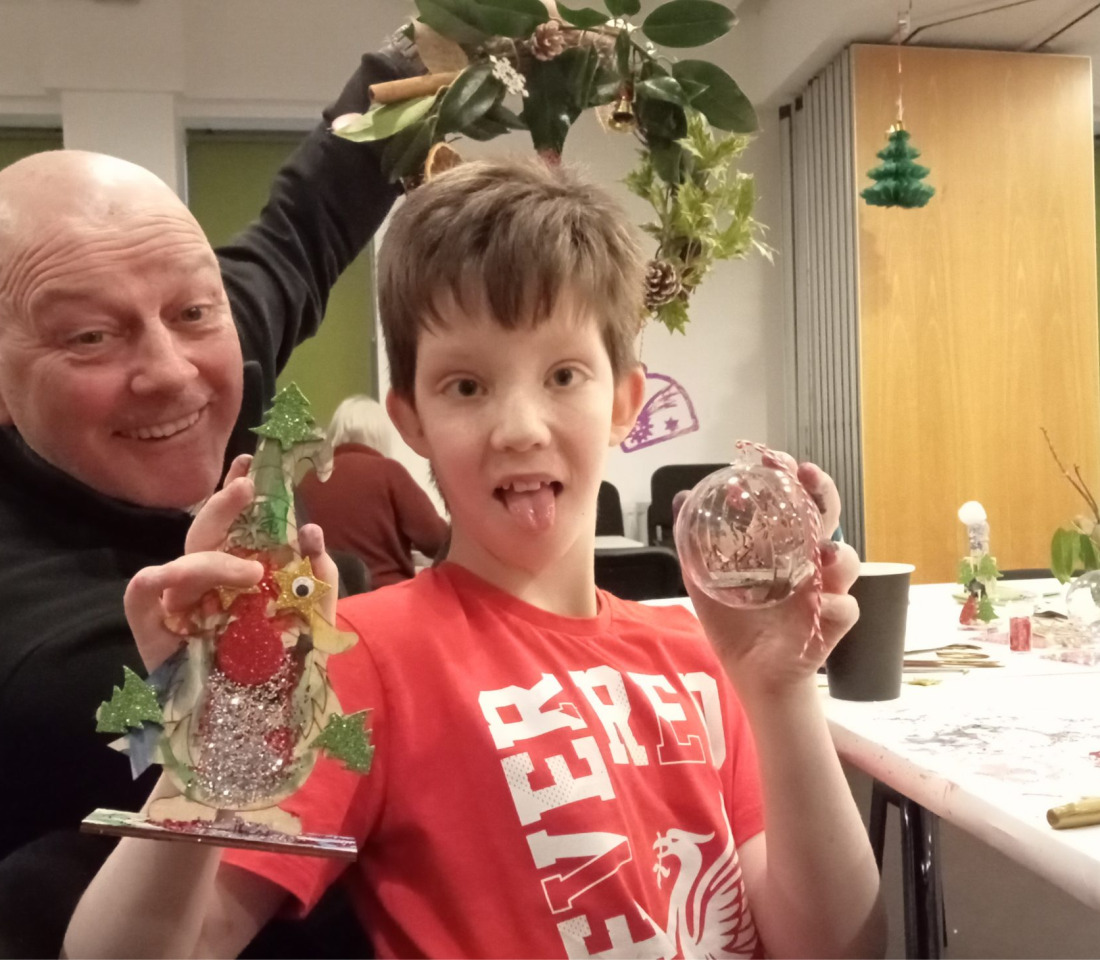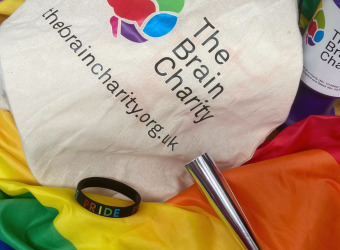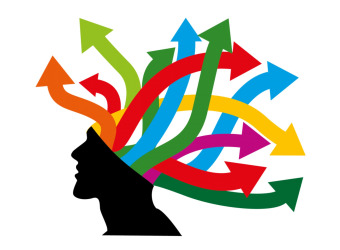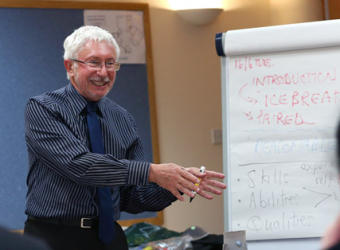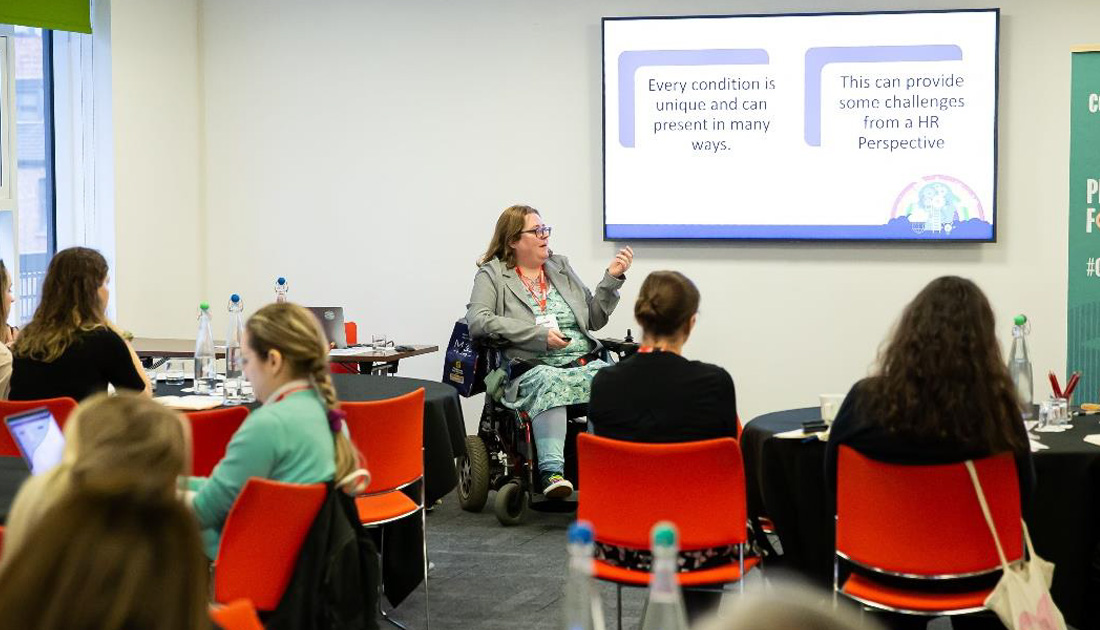
Getting an autism or ADHD diagnosis as an adult
Navigating and recognising neurodivergence in adulthood
Many people are diagnosed with autism or ADHD later in life, which can lead to new ways of understanding themselves and their experiences.
In this blog, we chat with Snoof, a trainer at The Brain Charity, about their experiences of being diagnosed as an adult and the unique challenges faced by neurodivergent people.
Can you introduce yourself and your work?
My name is Snoof. I’m autistic, dyscalculic, and I have ADHD. I’m also a single parent and live with several long-term conditions. I provide training on behalf of The Brain Charity, and I also work as an artist. I focus on both digital and traditional art, and I work as an informal educator.
What are the benefits of getting an autism or ADHD diagnosis as an adult?
Of course, this is an incredibly individual experience, and what I consider benefits might not register the same way for others. For example, I tend to doubt myself and my experiences.
Without a diagnosis, I would probably be full of self-recrimination about my struggles, and I would tend to look negatively on any traits considered undesirable by wider society.
For me personally, being diagnosed allowed me to see myself the way I see other neurodivergent people – as an individual with strengths and challenges, just like neurotypical people.
A diagnosis also gives people access to the community of people who share a neurotype with them. Some traits, like executive dysfunction, are often not discussed by medical personnel.
Many of us find out why we experience the world the way we do by talking to others with shared experiences and finding common ground.
It’s easy to grow up thinking something is wrong with you, which can be hard to get past. But when you see traits you share in others, you can recognise that those people are wonderful – sometimes because of the traits in question. And obviously, that community has coping techniques that are invaluable.
I’ve refined a lot of my life and made it accessible to me by trying tricks others have shared with me. And that, again, ties into loving yourself and finding ways to live around the various inaccessible components of society – or at least not holding them against yourself!
Are there risks in the diagnosis process?
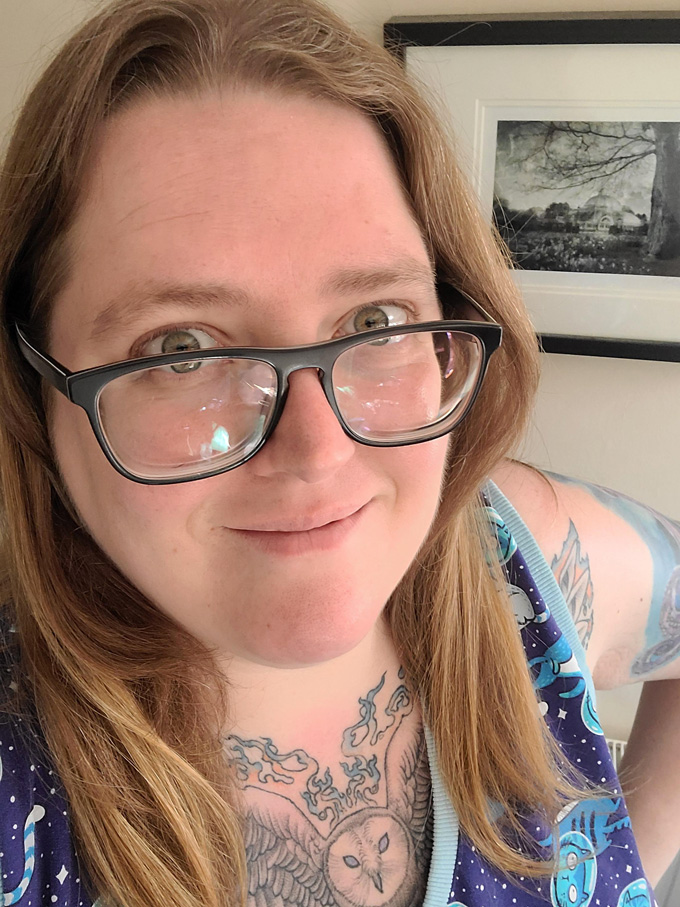
It can be tricky and traumatic. Inevitably, you’re asked to consider all the things you struggle with – but nobody asks what you’re really good at, because diagnosis is based on difficulties and perceived shortcomings.
Some people do still see you as less-than – I’ve personally witnessed people’s attitudes shift as soon as they find out I’m neurodivergent.
Neurodiversity as a concept is still in its infancy in many areas of society, and that can make it difficult to advocate for yourself.
Someone who doesn’t see you as a full adult because of your neurotype is not coming from a place where they’ll take your arguments in good faith.
As for labels being limiting, I actually think that’s a very outdated concept. The only reason labels are limiting is because some neurotypical people use them to limit us. It’s not the label itself, but the way it’s used.
Have you seen an increase in awareness surrounding neurodiversity?
Yes and no. I’ve noticed that there have been moves in the right direction, but it’s still highly dependent on who you talk to. Schools, for example, vary wildly in their treatment of neurodivergence.
I know of two schools, a few miles apart, where one has a team of dedicated professionals ensuring the education process is as accessible as possible to the neurodivergent kids in their care. In the other school, the proud claim is that none of their 1,000+ students are neurodivergent – an impossible claim that indicates neurodivergent kids are simply not accepted.
The same is true socially and professionally. While I am, in my role as a trainer, almost exclusively in contact with organisations where learning, acceptance, and accommodation are top priorities, I still meet people both socially and professionally whose attitudes are less evolved.
The problem then becomes the inability to predict people’s attitudes and behaviour without having met them. A lot of neurodivergent people have anxiety from past social experiences, so not knowing what to expect – and the available spectrum of responses being so wide – can really throw a spanner in the works.
What’s your advice for someone who thinks they might be neurodivergent?
Seek out materials written about the condition you’re researching, written by people with that condition. It’s important to remember that the way you experience the world, and what others see, are two different things.
It will help to have people explain traits from the inside, rather than relying on materials composed by someone who only sees traits from the outside.
But my most important piece of advice is to be kind to yourself and go easy. You can’t hate yourself into being someone other than yourself.
At The Brain Charity, we are here to support people navigating neurodivergence, whether you are exploring a new diagnosis or have lived with it for a long time. We believe everyone deserves to be understood and accepted, and we work hard to create environments where that can happen.
We’re proud to work with people like Snoof, who not only are neurodivergent but share their knowledge and experience to help others. Our trainers are at the heart of what we do – helping organisations and communities become more understanding and inclusive of neurodivergent people.
Our workplace neurodiversity training is built on this understanding. By teaching employers the benefits of employing a neurodiverse workforce and creating more opportunities for neurodivergent individuals, we help organisations foster inclusive environments that celebrate the unique talents neurodivergent people bring.
Whether you’re looking to improve your team’s knowledge or build a more supportive workplace, our neurodiversity training provides the tools to make a real difference.
Category: News
Published: 24 October 2024


